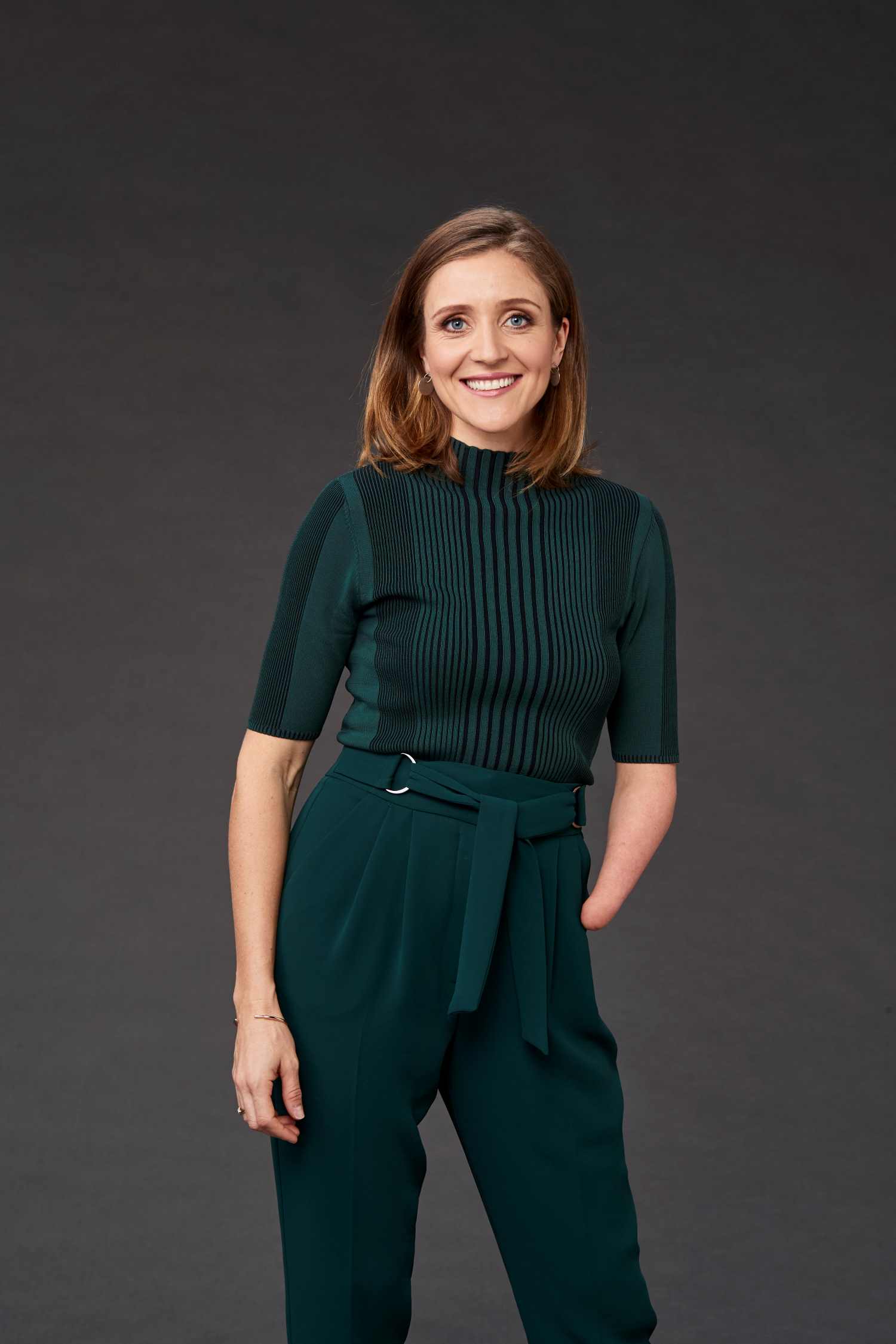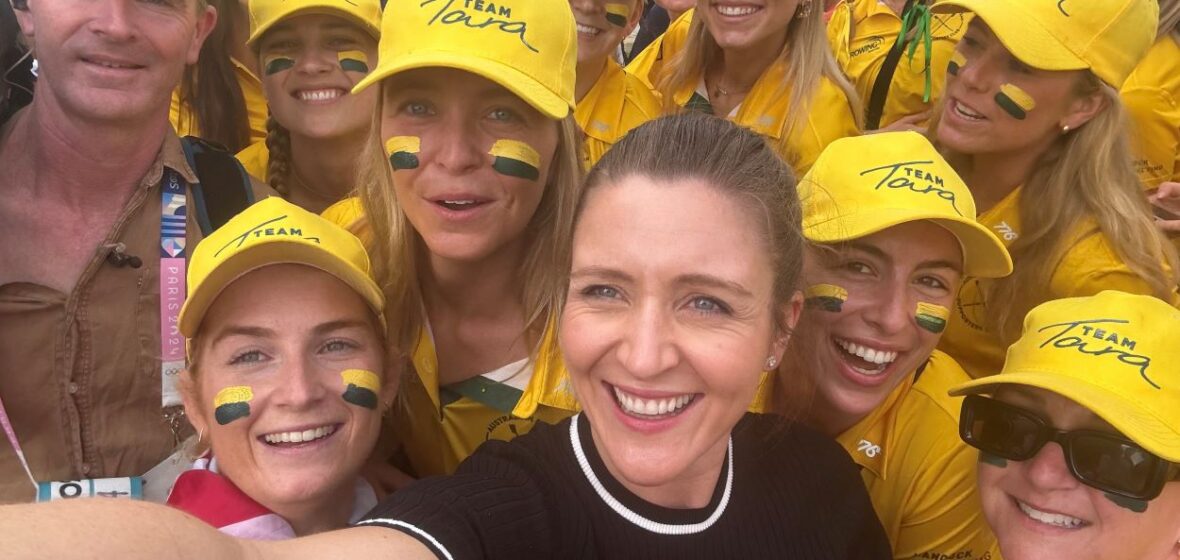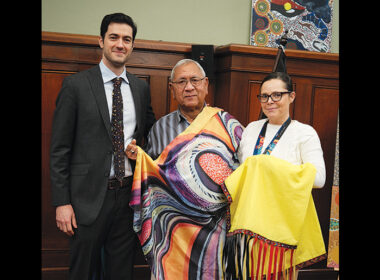When LSJ speaks with Annabelle Williams, Paralympic gold medal winner and lawyer, she has just returned from commentating at the Paris Olympics and is readying to return for the Paralympics, which begin tomorrow.
“For the Olympics, I was at lots of different venues, seeing lots of different sports, and I was doing what’s called ‘mixed zone’ reporting. So, when an athlete finished their event or their race, they would come straight to me for interview,” Williams explains.
“My role for the Paralympics is pretty much the same. I’ll do some previewing and reviewing of the swimming and then interviewing all the athletes once they’ve competed. I’ll also be involved in the Opening and Closing ceremonies and on some days, a daily highlights show.”
It is her first time working with Channel Nine, but not her first media job at the Olympics and Paralympics.
She explains, “For the Tokyo and Rio Paralympics, I was hosting at the desk for Channel Seven. For the Olympics in Rio, I was actually the lawyer for the Australian team. I was the in-house counsel for the Australian Olympic Committee for five years, so I went over to Rio in that role. Prior to that, I was competing. So, I feel like I’ve had this athlete experience, lawyer experience and a broadcaster’s experience. I feel very fortunate. It’s such a privilege to be involved,” she says.
Williams has a rich, unique professional combination of legal, executive, and elite sports experience. In addition to being the founder of her own motivational consultancy business, Grit & Gold Pty. Ltd., she’s been a member of the National Sports Tribunal for the past four years, Chair of Athletes’ Commission for the Paralympics Australia, and a former board member for Swimming Australia and Paralympics Australia. Her career has very much aligned with her passion for justice and conduct within elite sports (she is also a Code of Conduct Commission Member for the International Cricket Council).
The Sydney-born and based swimming competitor represented Australia in the 2006 Commonwealth Games (nabbing a silver and bronze medal), the 2008 Summer Paralympics (bronze in the 100m butterfly), the 2010 Commonwealth Games (winning silver in the Women’s 50m freestyle), and the 2012 London Paralympic Games (winning a gold medal for the 4 x 100mm medley relay).
This year marks a decade since she was awarded an Order of Australia Medal in the 2014 Australia Day Honours “for service to sport as a Gold Medallist at the London 2012 Paralympic Games.”
Until 2019, she spent nearly five years as Legal Counsel for the Australian Olympic Committee (AOC) – a job that threw her into the deep end (to use a suitably athletic metaphor).
“When I finished law school, I was studying while swimming. My first job was at Allens Linklaters in mergers and acquisitions. When I realised it was possible to combine law and sport, it was this dream come true,” she says.
“I’d come from an environment where there were 600 lawyers in the Sydney office, and there was a specialist for every minute aspect of the law. I was very well-versed in my specific [mergers and acqusitions] area, but I started at AOC as the only lawyer.
“On my first day, I was handling an employment law issue, a behavioural issue, an integrity related matter, a question of brand protection and a sponsorship agreement and I remember wondering ‘am I qualified to deal with all these things?’”
Ultimately, she says, “There were litigious and transactional aspects, and we sought external advice when we needed to. I had a broad remit, but a lot of it is corporate law and the product is sport. The CEO at the time, Fiona de Jong, had been a lawyer as well. She was really supportive and gave me so much autonomy, so I feel I grew a lot as a lawyer at the time.”
Still, operating in a different jurisdiction in Rio, where the law is markedly different to the Australian system, was a fast learning curve.
“We had a number of challenges on the ground in Brazil, so it was a really rich experience. It has a very different legal system. While I speak French, that didn’t help when trying to speak with Portuguese-speaking lawyers.”
Williams is contemplative when asked about balancing her many roles, personal and professional. Her number one priority is being a mother to her two young daughters, two and six years old, she says. That is followed by the business she founded, which takes her around the world.
“[My business] involves motivational speaking at conferences internationally, and discussing with organisations the matters of diversity, equity, inclusion and belonging. I also advise on communication and presentation skills. That work takes up 80 per cent of my working time. I travel a lot for very short periods of time. In fact, I have a talk in Chicago after the Paralympics, so I’ll be flying in at 6am and leaving at 6pm in the evening. I love that.”

Rather than the typical advice a layperson might expect an elite athlete to share with professionals, such as strict time management and setting goals, Williams says there are key ingredients to a successful workplace culture that can sometimes be overlooked.
“I talk a lot about courage, kindness and inclusion,” she says. “I’ve been part of some very inclusive cultures, and it fosters resilience when you can show up as your full self; you can bounce back from setbacks.”
The remaining 20 per cent of her work is board work, legal consulting for World Aquatics, World Athletics, and the International Cricket Council, and media work on a contract basis.
There were a number of ethical and professional conduct controversies at this year’s Paris Olympics regarding hormone testing, drug testing and conduct in the Olympic Village and outside it. Williams explains it can be a complex system in terms of handling such matters, considering the number of international federations and national committees involved in the event.
“The way the Olympics operates is interesting,” Williams explains.
“All the athletes are under contract with their National Olympics Committee, and they must adhere to the Olympic Charter. The other complexity is that international federations are involved. For example, if we take the discussions that occurred about the quality of the water in the Seine and whether or not athletes should or could swim in there, World Aquatics, which is the International Federation for swimming and marathon swimming, are responsible for the field of play.
“So, they are testing the quality of the water and they’re in constant discussions with the Paris 2024 Organizing Committee and the International Olympic Committee. On the ground, I had discussions with a couple of members of the World Aquatics medical commission, who were the ones who were doing the testing of the water and reporting it back to World Aquatics and the IOC.
“The responsibility falls to the IOC, but also to the International Federation, to make that decision on whether the course is appropriate for the events to go ahead. Every incident, if there’s ever a behavioural issue, or a field of play issue, or protests on podiums and things like that, depending on the specific incident it would come back entirely to the question of who’s responsible for handing down some sort of disciplinary action or not, as the case may be.”
While the Olympics and Paralympics involve numerous complexities, there is one far less complicated matter that Williams is passionate about: ensuring that pathways to Para sport are provided to all children with a disability in Australian schools.
She tells LSJ, “During the Olympics and Paralympics, and in the immediate aftermath, everyone says ‘it’s incredible, the Paralympics is amazing’, but then it disappears off everyone’s agenda for four years. It’s a constant battle to figure out how to keep Para sport on sponsor’s radars, the radar of media and the public. There’s been a lot of progress but it’s not a problem that’s been solved yet. From a commercial and media angle, there are so many brilliant, rich stories of athletes in Para sport that could be harnessed and showcased throughout the four-year cycle between games; it’s an opportunity that isn’t being maximised right now.”
She continues, “I think what needs to happen is that every child with a disability in this country learns about pathways for them in Para sport and that isn’t streamlined now. Paralympics Australia runs a fantastic program, but if you don’t know about that, then you don’t realise it exists.”




